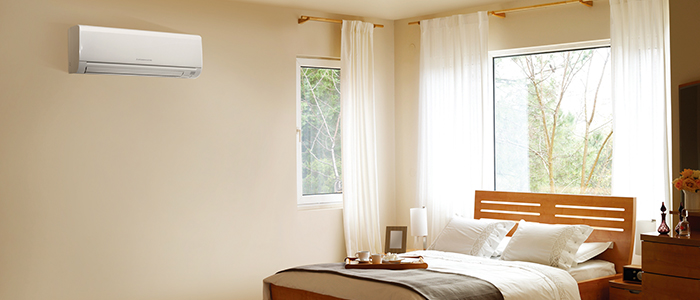Compare Home Heating Costs – compare types of heaters and running costs
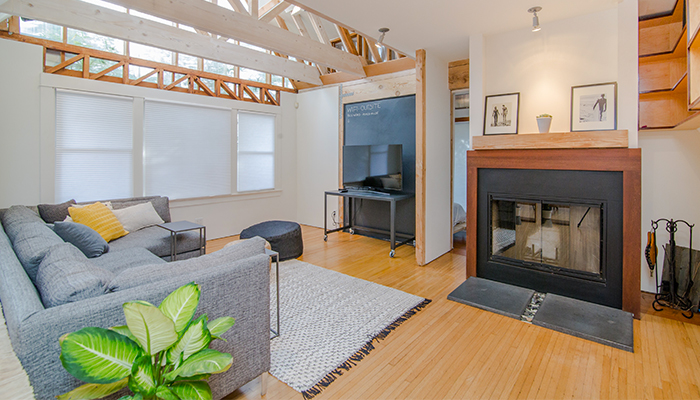
The typical New Zealand home spends 14% of their power on heating (source). As the cost of heating goes up and homes get bigger this is on the rise. Choosing the best heating option for your home will not only help create a warmer, healthier home, it can cut your power bill.
The World Health Organisation recommend a minimum indoor temperature is 18°C in living areas and 16°C in bedrooms. Recommendations for babies and elderly people are even higher.
Some key ways to take control of your spending on power this winter and make an informed choice about how to heat your home: 1. start with a family plan; 2. consider how you use each room; 3. compare the costs of different types of heaters; 4. compare the benefits of different types of heaters; and 5. compare power plans.
1. Start with a family plan

It’s much easier to reduce the amount of electricity you use to heat your home if you have a plan. Sit down with your family or flatmates to have a chat – try to think about which rooms you need to heat, which you don’t, and make sure everyone knows to keep internal doors shut. Try to come to an agreement about the best thermostat settings, what times you’ll be in to need a warm home, or whether everyone just needs to invest in some woolly socks and fleecy jumpers! A bit of planning and a few small changes can all add up to big savings on your electricity bill over the winter.
2. Consider how you use each room

How you use a room will help you decide the type of heater that’s most suitable. For larger rooms that you use regularly, it may be worth paying the upfront cost to install a fixed heater with lower running costs. Electric heaters will be better for smaller rooms or rooms you only want to heat occasionally. Check out the comparison of home heating running costs and the benefits and risks of different types of heating options below.
3. Compare the costs of different types of heaters
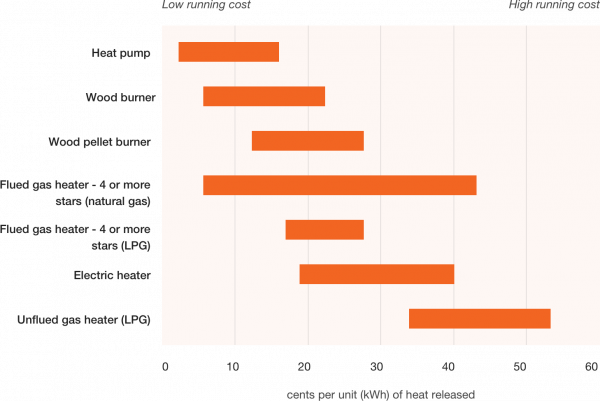
4. What are the benefits of different types of heaters?
Heat Pumps
Heat Pumps are the most energy-efficient form of heating available. They work by taking the heat from the air outside the home and using it to warm the heat inside the home (a bit like a refrigerator in reverse). They have low running costs, produce instant heat, and have the convenience of a thermostat and timer.
But, they must be sized correctly for the space and climate, and efficiency varies between brands. Find out how to get the most from your heat pump
Wood Burners

Modern Wood Burners are more modern and efficient than an open fireplace. They have low running costs, especially if you have access to free or cheap firewood. They produce very little pollution, so they can be good for the environment if you use renewable wood energy. They are great for heating large spaces, and can heat hot water through a wetback system.
However, you need to plan ahead to ensure you have a good supply of dry firewood that will burn cleanly, and you typically need building consent to install one. Find out more about the pros and cons of a wood burner
Wood Pellet Burners
Wood pellet burners are a type of wood burner that burns wood pellets made from sawmill waste. They are typically more efficient than wood burners, and better for the environment as the pellets are made from waste material and burn cleanly. They typically start with an electric lighter and contain a thermostat so offer better temperature control. They are great for heating large spaces, and can heat hot water through a wetback system.
However, be careful as you cannot burn firewood in a wood pellet burner, and you need building consent to install one. Find out more about this environmentally friendly, clean heating option.
Flued Gas heaters (natural or LPG)
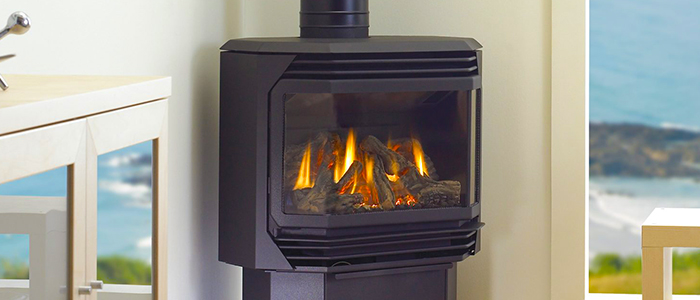
Gas heaters are great for heating large spaces with the flip of a switch. You can control the temperature with a thermostat and use a timer. A fireplace-style gas heater gives you all the cosiness of a fireplace, without the hassle of dealing with firewood and keeping the fire going.
A gas heater will have an initial installation charge by a registered gas fitter, and you will need to pay running costs for LPG bottles or to supple gas to your home. There are also environmental concerns, as although gas burns relatively cleanly, the greenhouse gas emissions contribute to climate change. Learn more about gas heating.
Electric heaters
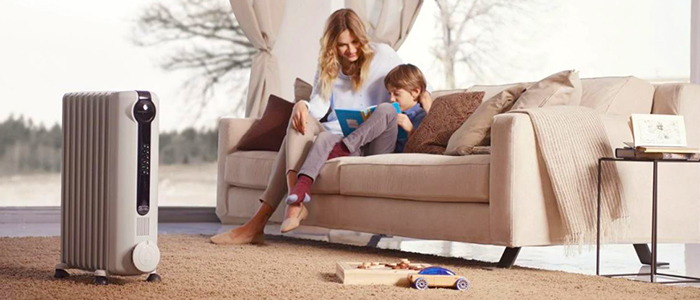
Electric heaters are a super convenient way to heat small spaces like bedrooms. They are very cheap to buy, and you don’t need to pay the same installation or set up costs as other heating options. You can move them around your home as you need them, and you get heat with the flip of a switch.
However, electric heaters are one of the most expensive of the heating options. Their heat output is lower than other heater types, and their built-in thermostats generally aren’t very accurate. Learn more about electric heaters
Portable gas heaters
Portable gas heaters are “unflued”, which means they don’t have vents or chimneys to carry away emissions like water vapour, nitrogen dioxide and carbon monoxide. Although they share many of the benefits of flued gas heaters – fast, convenient, easily controlled heat – the emissions can make your house damp and harm your health, especially if there isn't enough fresh air ventilation. They are also a fire risk. Portable gas heaters are best kept as a back-up form of heat to use during power cuts, rather than for every day heating.
Smarter Homes and EECA Energywise have great detailed comparison of the pros and cons of different heating options.
5. Take control of your spending & make an informed choice
As we head into winter, and the heaters come on, the best way to take control of your spending is to compare Power Plans to make sure you are on the best plan for you. Make an informed choice about the best power deal for you and Compare Power Plans


